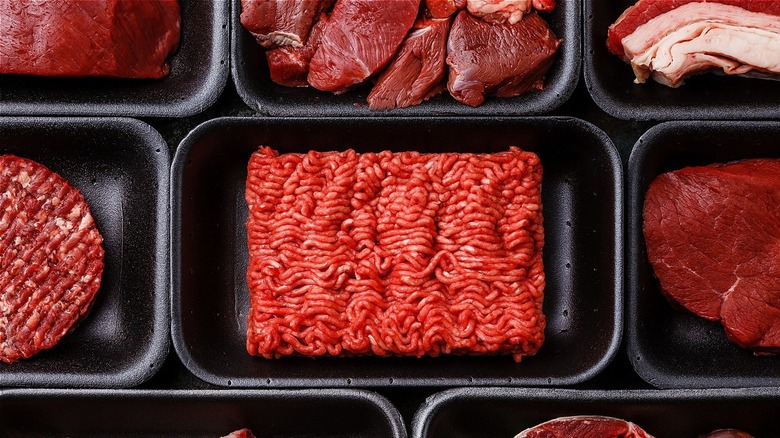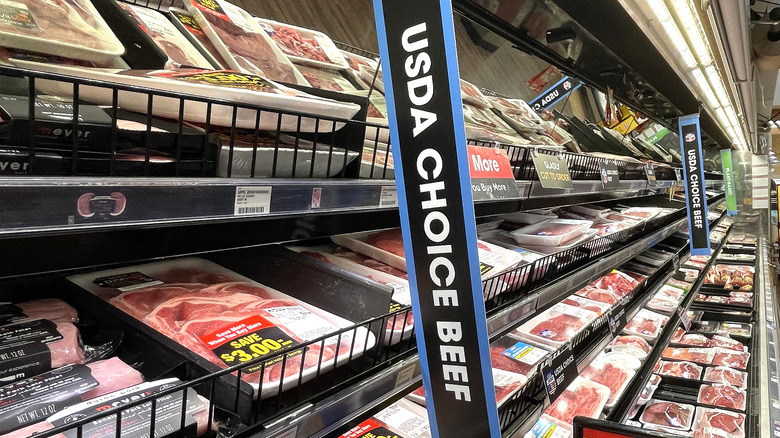The 'Product Of USA' Label On Meat May Be A Lie
Raise your hand if you want old meat from possibly five weeks ago that has traveled across country borders and sometimes even over the ocean, then plopped into plastic on your local grocery store shelf. No one? Yeah, that makes sense. With meat like beef, freshness is of the utmost importance, especially because food-borne illnesses harbored on spoiled beef can cause food poisoning (via Healthline). Whether you're making mistakes with ground beef or not, you likely rely on product labels to tell you exactly what you're buying. We tend to trust what is written on the packaging to be truthful, but that might not always be the case with beef.
Consumers should also decide who or what they want to support with their purchases, so misleading labeling could lead someone to buy something they normally wouldn't. FarmAid points out that imported beef can create price pressure for farmers, and may possibly mislead consumers about the actual cost of the food system compared to local beef when it's not labeled as imported. It also turns out a sticker that says "Product of USA" might not mean that beef is actually from the United States.
Beef from other countries can be labeled "Product of USA"
In some cases, the sticker is just for show. As Food and Wine reports, some of the beef bearing the "Product of USA" label is actually from New Zealand. The Counter points out that the loophole in the USDA's policy allows beef from literally anywhere in the world to be labeled as this way so long as it goes through some level of processing here in the states even if that means just repackaging meat that was born, raised, slaughtered, and butchered in another country.
Understandably, this can be a frustrating situation for American cattle farmers who are actually producing authentic U.S. meat products. Thankfully, a bill sponsored by FarmAid has been introduced to Congress: The American Beef Labeling Act seeks to reinstate another bill, Mandatory Country of Origin Labeling, to stop beef from other countries from being labeled as "Product of USA" if it wasn't born and raised in the United States (via Voter Voice). For now, the labeling confusion falls into the category of ground beef myths.

